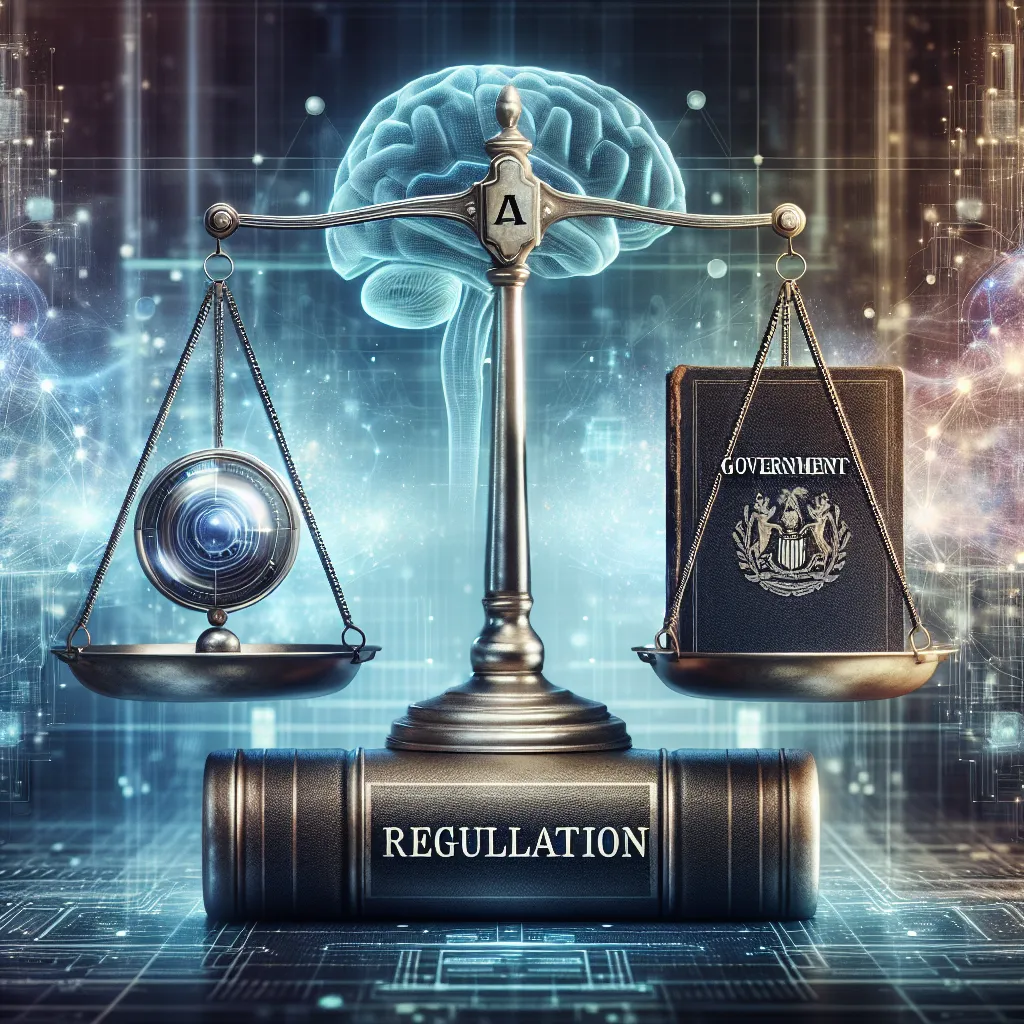Artificial Intelligence (AI) has become a hot topic in recent years, and its implications for society are increasingly debated. As a result, the question of whether governments should regulate AI has become a common theme in IELTS Writing Task 2. This article will provide you with sample essays and in-depth analysis to help you tackle this challenging topic with confidence.
Nội dung bài viết
Analyzing the Topic and Its Relevance
The topic of government regulation of AI has appeared in various forms in IELTS Writing Task 2 over the past few years. Its frequency has been steadily increasing, reflecting the growing importance of AI in our daily lives. Based on current trends, we can expect this topic to continue appearing in future IELTS exams.
One of the most common variations of this question is:
Some people believe that the government should regulate the use of artificial intelligence, while others think it should be left to develop freely. Discuss both views and give your own opinion.
Let’s analyze this question and provide sample essays for different band scores.
Question Analysis
This question is asking you to discuss two contrasting views on the regulation of AI:
- The government should regulate AI
- AI should be left to develop freely
You are also required to give your own opinion on the matter. This is a classic “discuss both views and give your opinion” type of question, which requires a balanced approach and a clear stance.
Sample Essays
Band 8-9 Essay
Artificial Intelligence (AI) has become an integral part of our lives, sparking debates about its regulation. While some argue for government oversight, others believe in its unrestricted development. This essay will examine both perspectives before presenting my own viewpoint.
Proponents of government regulation argue that AI’s potential risks necessitate oversight. They contend that unchecked AI development could lead to job displacement, privacy breaches, and even existential threats to humanity. For instance, autonomous weapons systems could make warfare more devastating if not properly controlled. Moreover, AI algorithms used in hiring or lending decisions might perpetuate biases if left unregulated. Government intervention, they argue, can ensure AI benefits society while minimizing potential harm.
On the other hand, advocates for free development assert that regulation could stifle innovation. They believe that the rapid advancement of AI technology requires a flexible approach that government bureaucracy cannot provide. These supporters argue that market forces and industry self-regulation can adequately address concerns while fostering groundbreaking developments. They point to historical examples where over-regulation has hindered technological progress, potentially depriving society of AI’s full benefits.
In my opinion, a balanced approach is crucial. While I recognize the need for some regulation to safeguard against potential risks, I believe that overly restrictive policies could indeed hamper innovation. The ideal solution would be a framework of adaptive regulation that evolves with the technology. This could involve collaboration between government, industry experts, and ethicists to create guidelines that protect public interests without stifling creativity and progress.
In conclusion, the regulation of AI is a complex issue that requires careful consideration. A nuanced approach that balances safety concerns with the need for innovation is essential to harness the full potential of AI while mitigating its risks.
(Word count: 292)
Band 6-7 Essay
The rapid development of Artificial Intelligence (AI) has led to debates about whether it should be regulated by the government or allowed to develop freely. This essay will discuss both views and provide my opinion.
Those who support government regulation of AI argue that it is necessary for public safety. They believe that without proper oversight, AI could become dangerous or be misused. For example, AI could be used to create fake news or invade people’s privacy. Government regulations could help prevent these problems and ensure that AI is developed responsibly.
On the other hand, people who think AI should develop freely argue that regulations might slow down progress. They say that AI has the potential to solve many problems in areas like healthcare and climate change. If there are too many rules, it might be harder for scientists and companies to make new discoveries. They also believe that the market can regulate itself and that companies will create safe AI products to keep their customers happy.
In my opinion, some regulation is necessary, but it should not be too strict. I think the government should set basic safety standards and ethical guidelines for AI development. However, they should also allow room for innovation and creativity. A balance between regulation and freedom would be the best approach.
To conclude, while there are valid arguments on both sides, I believe a moderate level of government regulation is needed to ensure AI benefits society without causing harm.
(Word count: 249)
Band 5-6 Essay
Artificial Intelligence (AI) is becoming more important in our lives. Some people think the government should control it, but others say it should be free. I will talk about both ideas and give my opinion.
People who want the government to control AI think it can be dangerous. They worry that AI might take jobs from humans or be used for bad things. They think the government can make rules to keep AI safe and fair for everyone.
But other people think AI should be free to grow. They believe that if there are too many rules, it will be hard to make new and helpful AI. They say that companies will make safe AI on their own because they want customers to like their products.
I think both sides have good points. AI can be helpful but also risky. In my opinion, we need some rules for AI, but not too many. The government should make sure AI is safe, but also let people make new ideas.
In conclusion, AI is important and we need to be careful with it. Some rules are good, but we should also let AI grow and help people.
(Word count: 184)
Explanation of Band Scores
Band 8-9 Essay
This essay demonstrates excellent writing skills and meets all the requirements for a high band score:
- Task Response: The essay fully addresses all parts of the task, presenting a well-developed response with relevant, extended and supported ideas.
- Coherence and Cohesion: Ideas are logically organized with clear progression throughout. Paragraphing is well-managed and cohesive devices are used effectively.
- Lexical Resource: A wide range of vocabulary is used accurately and appropriately. Less common lexical items are used with precision.
- Grammatical Range and Accuracy: A wide range of structures is used flexibly and accurately. Error-free sentences are frequent, and minor errors are rare.
Band 6-7 Essay
This essay shows good writing skills but lacks some of the sophistication of the higher band essay:
- Task Response: All parts of the task are addressed, although some parts are more fully covered than others.
- Coherence and Cohesion: Information and ideas are arranged coherently and there is a clear overall progression. Cohesive devices are used effectively, but not always with full flexibility.
- Lexical Resource: An adequate range of vocabulary is used for the task. There may be some inaccuracy in word choice or collocation, but this does not impede communication.
- Grammatical Range and Accuracy: A mix of simple and complex sentence forms is used. There are some errors, but these rarely reduce communication.
Band 5-6 Essay
This essay demonstrates basic writing skills and understanding of the task:
- Task Response: The essay addresses the task, but the format is simple and development of ideas is limited.
- Coherence and Cohesion: The overall structure is clear, but there may be a lack of overall progression. Basic cohesive devices are used.
- Lexical Resource: A limited range of vocabulary is used, with some repetition. Word choice errors may occur, but meaning is generally clear.
- Grammatical Range and Accuracy: A limited range of structures is used. Errors are frequent, but meaning is generally clear.
Key Vocabulary to Remember
-
Artificial Intelligence (AI) (noun) /ˌɑːrtɪˈfɪʃl ɪnˈtelɪdʒəns/: The simulation of human intelligence in machines.
-
Regulate (verb) /ˈreɡjuleɪt/: To control or supervise something by means of rules and regulations.
-
Innovation (noun) /ˌɪnəˈveɪʃn/: The introduction of new ideas, methods, or things.
-
Oversight (noun) /ˈəʊvəsaɪt/: The action of overseeing something, especially the supervision of a company or organization.
-
Stifle (verb) /ˈstaɪfl/: To prevent or constrain (an activity or idea).
-
Ethical (adjective) /ˈeθɪkl/: Relating to moral principles or the branch of knowledge dealing with these.
-
Bureaucracy (noun) /bjʊəˈrɒkrəsi/: A system of government in which most of the important decisions are made by state officials rather than by elected representatives.
-
Autonomous (adjective) /ɔːˈtɒnəməs/: Acting independently or having the freedom to do so.
-
Perpetuate (verb) /pəˈpetʃueɪt/: To make something continue indefinitely.
-
Nuanced (adjective) /ˈnjuːɑːnst/: Characterized by subtle shades of meaning or expression.
 AI Regulation Concept
AI Regulation Concept
Conclusion
The topic of government regulation of AI is likely to remain relevant in IELTS Writing Task 2. To prepare effectively, practice writing essays on related topics such as:
- The impact of AI on employment
- Ethical considerations in AI development
- The role of AI in healthcare and education
- Privacy concerns related to AI and big data
Remember, the key to success in IELTS Writing Task 2 is not just about knowing the topic, but also about presenting your ideas clearly, coherently, and with appropriate language. Practice writing essays on these topics and share them in the comments section below for feedback and discussion. This active practice will help you improve your writing skills and prepare you for success in your IELTS exam.
For more information on related topics, you might find these articles helpful:


